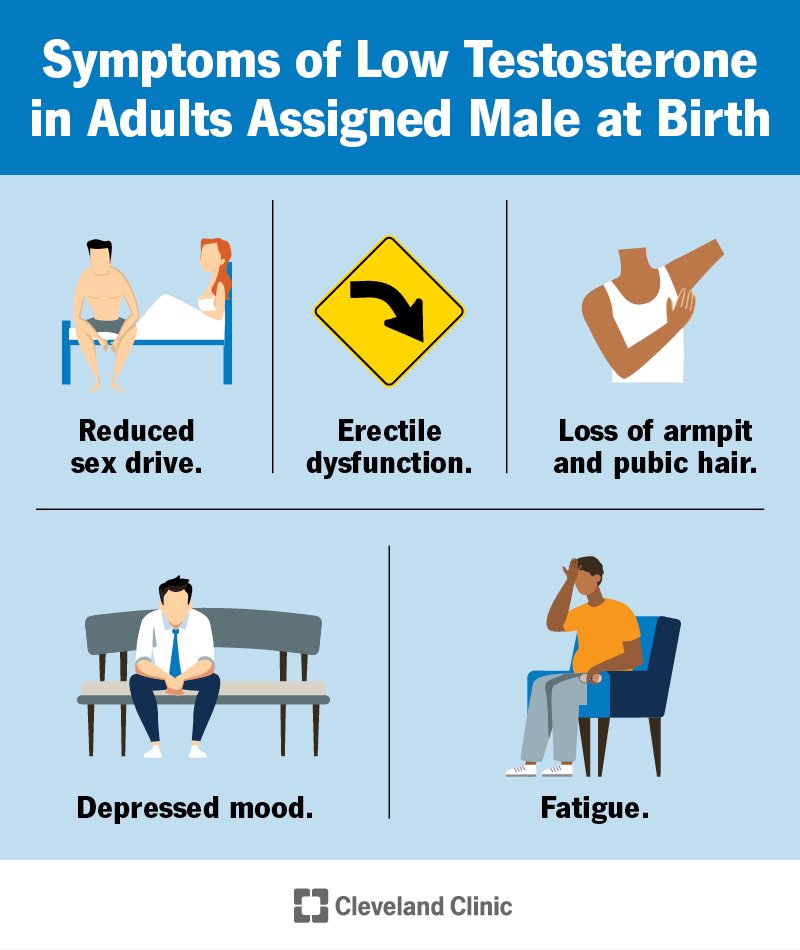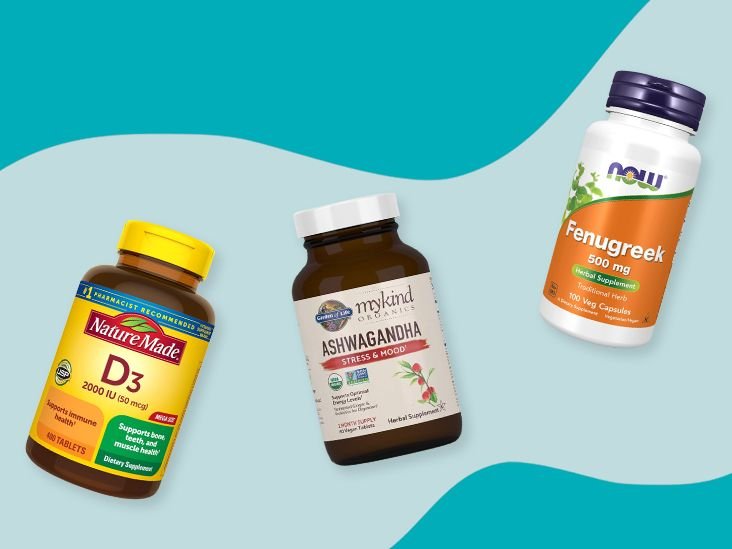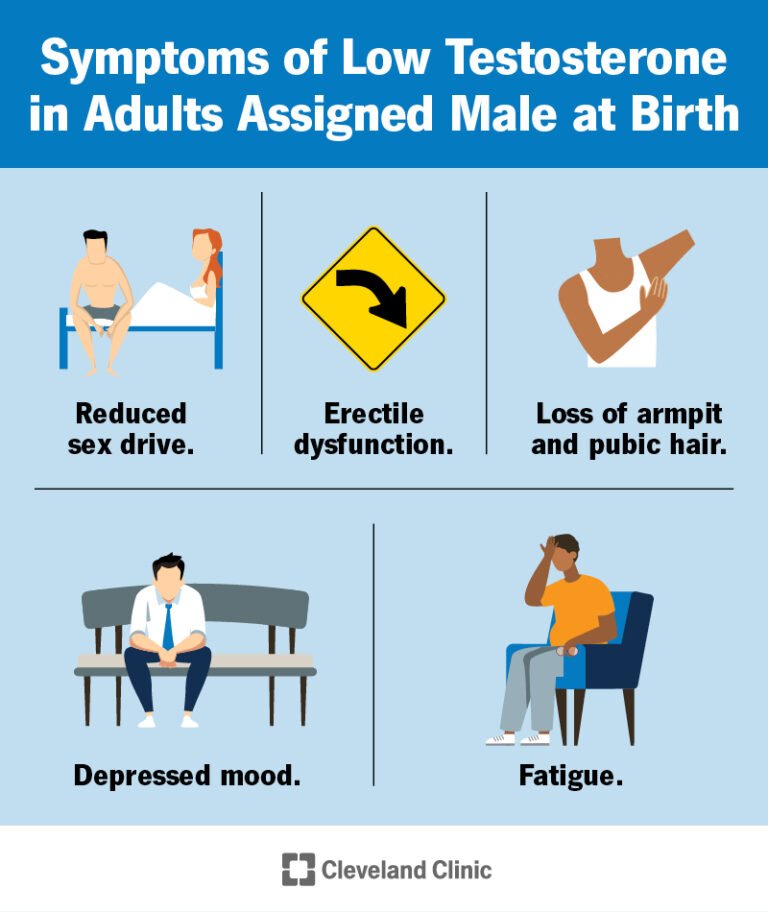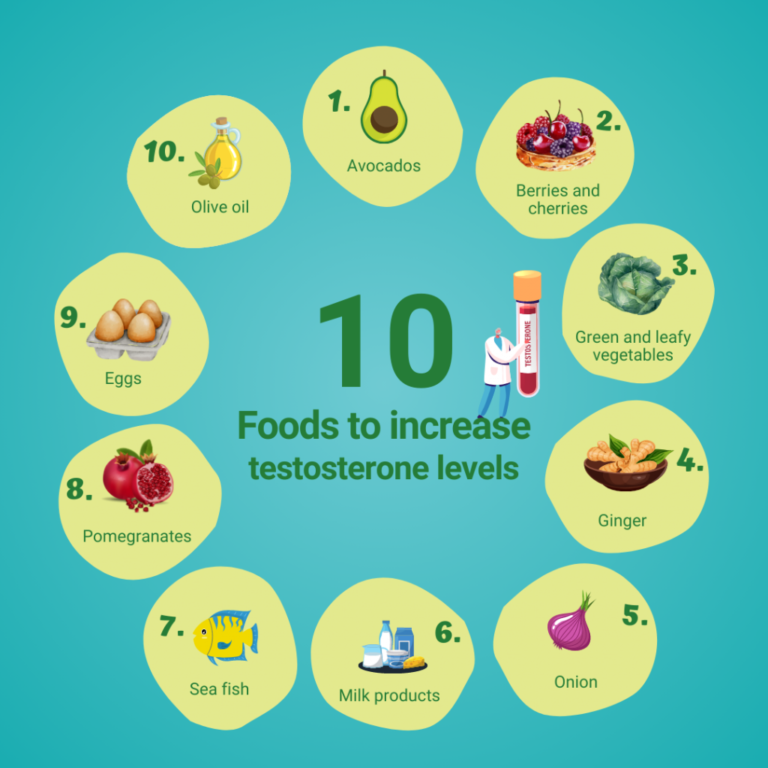Low Testosterone: Causes, Symptoms, and Treatment Options
Low testosterone, or hypogonadism, is a condition where the body doesn’t produce enough testosterone. It affects energy, mood, and overall health.
Low testosterone can significantly impact a man’s physical and emotional well-being. Symptoms include fatigue, depression, reduced libido, and muscle mass loss. Testosterone is a crucial hormone responsible for male development and maintenance of various bodily functions. Its deficiency can result from aging, medical conditions, or lifestyle factors.
Diagnosing low testosterone involves blood tests to measure hormone levels. Treatment options include lifestyle changes, hormone replacement therapy, and medications. Addressing this condition early can improve quality of life and prevent further health complications. Regular check-ups and a healthy lifestyle can help manage and mitigate symptoms effectively.

Credit: oregonmanclinics.com
Causes Of Low Testosterone
Low testosterone can affect men’s health at any age. Understanding the causes can help in managing this condition better. Below are the primary causes of low testosterone.
Aging
As men age, testosterone levels naturally decline. This decrease starts around the age of 30. It continues at a rate of about 1% per year. By the time men reach their 70s, levels can be significantly lower.
Medical Conditions
Certain medical conditions can lead to low testosterone. These include:
- Diabetes
- Obesity
- Hypothyroidism
- Chronic kidney disease
These conditions can affect hormone production. They can also impair the body’s ability to use testosterone.
Lifestyle Factors
Lifestyle choices can impact testosterone levels. Factors include:
- Poor diet
- Lack of exercise
- Excessive alcohol consumption
- Smoking
Maintaining a healthy lifestyle can help support normal testosterone levels.
| Cause | Impact on Testosterone |
|---|---|
| Aging | Natural decline by 1% per year from age 30 |
| Diabetes | Impaired hormone production |
| Obesity | Reduced testosterone levels |
| Poor Diet | Low nutrient intake affects hormone production |
Common Symptoms
Low testosterone, or low T, affects many men worldwide. Understanding the common symptoms can lead to early diagnosis and treatment. Here, we will explore the physical changes, emotional symptoms, and sexual health issues associated with low testosterone.
Physical Changes
Men with low testosterone may experience a range of physical changes. These changes can impact overall health and daily activities.
- Decreased muscle mass and strength
- Increased body fat, especially around the abdomen
- Reduced bone density, leading to fractures
- Fatigue and reduced energy levels
- Decreased body hair growth
Emotional Symptoms
Low testosterone doesn’t only affect the body. It can also lead to significant emotional changes.
- Increased feelings of sadness or depression
- Difficulty concentrating or memory issues
- Irritability and mood swings
- Reduced motivation and self-confidence
Sexual Health
Sexual health is often impacted by low testosterone levels. These symptoms can affect intimate relationships and self-esteem.
- Reduced sex drive or libido
- Erectile dysfunction or difficulty maintaining an erection
- Decreased semen volume
- Fewer spontaneous erections during sleep
Recognizing these symptoms is crucial. Early detection and treatment can improve quality of life.
Diagnosing Low Testosterone
Diagnosing low testosterone involves several steps. Understanding each step helps in recognizing the condition. This section will guide you through the process.
Medical History
Doctors start with your medical history. They ask about your symptoms and lifestyle. They need to know about fatigue, low libido, and mood changes. They also inquire about sleep patterns and stress levels. Your family history is also important. It may highlight hereditary issues related to testosterone.
Blood Tests
Blood tests are crucial for diagnosing low testosterone. They measure the levels of testosterone in your blood. The tests are usually done in the morning. Testosterone levels are highest in the morning. Blood tests can also check for other health issues. These include thyroid problems or diabetes.
| Test Name | Purpose |
|---|---|
| Total Testosterone | Measures overall testosterone levels |
| Free Testosterone | Measures active testosterone in the blood |
| SHBG | Checks for Sex Hormone Binding Globulin |
| LH and FSH | Evaluates pituitary gland function |
Physical Examination
A physical examination is another essential step. The doctor will check your body for signs of low testosterone. They may look for reduced muscle mass and body hair. They also examine the size of your testicles. Sometimes, they check for breast tissue enlargement. These physical signs help in confirming the diagnosis.
:max_bytes(150000):strip_icc()/Health-Low-Testosterone-Vert-V2-c83eb3286f614deda953efcbd2b1a65d.jpg)
Credit: www.health.com
Natural Remedies
Natural remedies can help address low testosterone levels without medical intervention. These methods offer a holistic approach, promoting overall well-being. Below are some effective natural remedies to consider.
Dietary Changes
What you eat impacts your testosterone levels. Incorporate the following foods into your diet:
- Lean Proteins: Chicken, turkey, and fish boost testosterone.
- Healthy Fats: Avocados, nuts, and olive oil support hormone production.
- Vegetables: Leafy greens like spinach and kale are rich in magnesium.
- Fruits: Berries and pomegranates can increase testosterone.
Avoid processed foods and sugary snacks. These can lower testosterone levels. Drink plenty of water and stay hydrated.
Exercise
Regular exercise can naturally boost testosterone. Focus on the following:
- Strength Training: Lifting weights increases muscle mass and testosterone.
- High-Intensity Interval Training (HIIT): Short bursts of intense activity are effective.
- Cardio: Running, cycling, or swimming improves overall health and hormone levels.
Consistency is key. Aim for at least 30 minutes of exercise, five times a week.
Stress Management
High stress levels can lower testosterone. Implement these stress-reducing techniques:
- Meditation: Daily meditation calms the mind and reduces stress.
- Deep Breathing: Practice deep breathing exercises for relaxation.
- Yoga: Yoga combines physical activity and stress relief.
- Sleep: Ensure you get 7-8 hours of quality sleep each night.
Managing stress effectively helps maintain healthy testosterone levels.
Medical Treatments
Low testosterone affects many men. It can lead to fatigue, depression, and low libido. There are several medical treatments to manage low testosterone levels. Below are some of the most effective options.
Hormone Replacement Therapy
Hormone Replacement Therapy (HRT) is a common treatment for low testosterone. It involves replacing the missing hormones in the body. This can help improve energy levels, mood, and sexual function.
HRT can be administered in various forms:
- Injections
- Gels
- Patches
- Implants
Each method has its pros and cons. Consult a doctor to find the best option.
Medications
Medications can also help treat low testosterone. These drugs stimulate the body to produce more testosterone. Here are some of the common medications:
| Medication | Form |
|---|---|
| Clomiphene Citrate | Oral |
| Human Chorionic Gonadotropin (HCG) | Injection |
These medications can have side effects. Always follow your doctor’s advice.
Surgical Options
Surgery is a less common treatment for low testosterone. It is typically reserved for severe cases. One surgical option is testicular implants. These implants can improve testosterone levels and overall quality of life.
Surgery carries risks, so it’s important to weigh the benefits and potential complications.
Lifestyle Adjustments
Low testosterone can impact your energy, mood, and overall health. Making lifestyle adjustments can help manage and improve testosterone levels naturally. Focus on three key areas: healthy eating, regular exercise, and sleep hygiene.
Healthy Eating
A balanced diet plays a crucial role in maintaining testosterone levels. Include foods rich in vitamins and minerals.
- Lean Proteins: Chicken, fish, and beans.
- Healthy Fats: Avocados, nuts, and olive oil.
- Vegetables: Broccoli, spinach, and kale.
- Whole Grains: Brown rice, oats, and quinoa.
Avoid processed foods and sugar. These can negatively impact hormone levels. Drink plenty of water. Staying hydrated is essential for overall health.
Regular Exercise
Exercise helps boost testosterone levels. Aim for a mix of activities.
- Strength Training: Lifting weights boosts testosterone.
- Cardio: Running or cycling improves heart health.
- Flexibility: Yoga or stretching reduces stress.
Consistency is key. Aim for at least 30 minutes a day. Exercise also helps with weight management. Excess fat can lower testosterone levels.
Sleep Hygiene
Quality sleep is crucial for hormone production. Aim for 7-9 hours each night.
- Set a Routine: Go to bed and wake up at the same time.
- Limit Screen Time: Avoid screens an hour before bed.
- Create a Relaxing Environment: Keep your bedroom cool and dark.
- Avoid Caffeine and Alcohol: These can disrupt sleep patterns.
Poor sleep can lead to lower testosterone levels. Prioritize rest to support your overall health.
Potential Risks And Side Effects
Low testosterone treatments can help many men. But they come with risks. Understanding these risks is important. This section covers hormone therapy risks, medication side effects, and long-term considerations.
Hormone Therapy Risks
Hormone therapy can boost testosterone levels. But it has risks. Some of the most important risks include:
- Heart problems: Hormone therapy may increase heart attack risks.
- Blood clots: Higher testosterone can cause blood clot formation.
- Sleep apnea: Hormone therapy can worsen sleep apnea symptoms.
Doctors usually monitor patients closely. Regular check-ups help catch problems early.
Medication Side Effects
Medications for low testosterone can have side effects. Some common side effects include:
- Acne: Medications may cause skin breakouts.
- Mood swings: Some men feel emotional changes.
- Swelling: Medications can cause swelling in the feet or ankles.
Each man reacts differently to medication. Doctors often try different medications to find the best fit.
Long-term Considerations
Long-term use of testosterone treatments can have effects. It’s important to consider these factors:
| Consideration | Impact |
|---|---|
| Bone Health | Long-term use can strengthen bones. |
| Heart Health | It can increase heart disease risks. |
| Prostate Health | It may affect prostate growth. |
Regular health checks are crucial. Doctors will monitor heart and prostate health closely.
:max_bytes(150000):strip_icc()/Low-testosterone-5216619_txt_final-f54332d26a124869bb49e110d5d09d2f.png)
Credit: www.verywellhealth.com
When To See A Doctor
Recognizing low testosterone symptoms is crucial. Early detection can lead to effective treatment. Knowing when to see a doctor helps manage this condition better.
Early Warning Signs
- Fatigue: Feeling tired all the time?
- Low libido: Less interest in sex?
- Mood changes: Experiencing mood swings?
- Weight gain: Gaining weight without reason?
- Muscle loss: Losing muscle mass?
If you notice these signs, consult a doctor. Early intervention can help.
Persistent Symptoms
Some symptoms may persist over time. These symptoms could indicate a more serious issue.
| Symptoms | Description |
|---|---|
| Erectile dysfunction | Difficulty maintaining an erection? |
| Memory problems | Having trouble remembering things? |
| Depression | Feeling sad or hopeless often? |
| Sleep issues | Struggling with sleep? |
Persistent symptoms can affect your quality of life. Seek medical advice if symptoms continue.
Professional Consultation
A professional consultation is essential for accurate diagnosis. A doctor can run tests to check testosterone levels.
- Schedule an appointment with your doctor.
- Discuss your symptoms in detail.
- Follow the doctor’s advice for tests and treatment.
Professional help can provide tailored treatment options. Don’t ignore the signs; get help early.
Frequently Asked Questions
What Happens If A Man’s Testosterone Is Low?
Low testosterone can cause fatigue, depression, reduced muscle mass, and decreased libido. It may also lead to weight gain and mood swings.
How Do I Fix My Low Testosterone?
Boost testosterone by exercising regularly, eating a balanced diet, getting enough sleep, and reducing stress. Consult a doctor for medical treatments.
How Can I Raise My Testosterone Level?
Exercise regularly, eat a balanced diet, reduce stress, get quality sleep, and consider supplements like vitamin D. Consult a doctor.
Should Low Testosterone Be Treated?
Yes, low testosterone should be treated. Treatment can improve energy, mood, and sexual function. Consult a healthcare provider for options.
Conclusion
Understanding low testosterone is crucial for maintaining overall health and well-being. Addressing symptoms early can lead to effective treatments. Lifestyle changes, diet, and medical advice play vital roles. Don’t ignore signs; seek professional help. Stay informed to ensure a healthier, more vibrant life.






